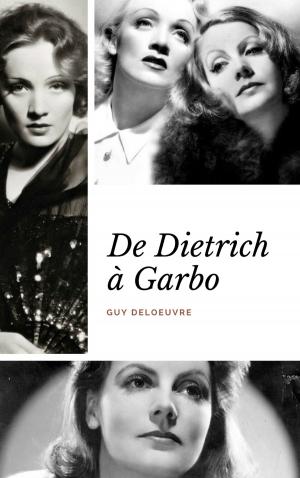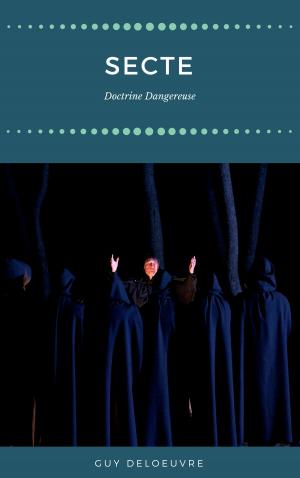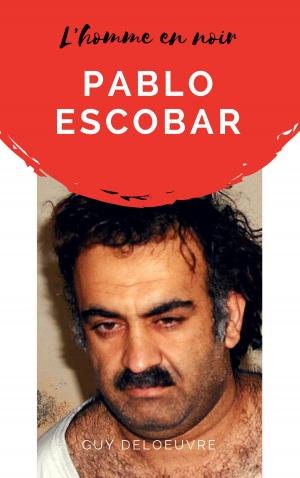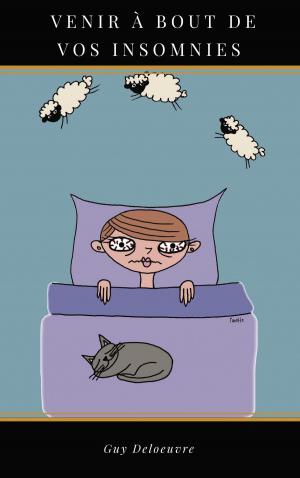| Author: | Honoré de Balzac | ISBN: | 1230003170618 |
| Publisher: | Guy Deloeuvre | Publication: | April 6, 2019 |
| Imprint: | Language: | English |
| Author: | Honoré de Balzac |
| ISBN: | 1230003170618 |
| Publisher: | Guy Deloeuvre |
| Publication: | April 6, 2019 |
| Imprint: | |
| Language: | English |
Paris, 1818.
A man came to Master Derville's study, but he was too busy to devote his time to this unknown patibular and offered to meet him later. When the man leaves the study, he declares himself to be Chabert... but everyone knows that Colonel Chabert died at the Battle of Eylau and that his wife was remarried to Count Ferraud.
1h. As agreed, Colonel Chabert meets with Mr. Derville. Disbelieving, Derville nevertheless listens to his client's explanations. Chabert recounts the reasons for his visit: 11 years earlier, at the Battle of Eylau in Germany, the colonel received a heavy blow of a sword to the skull and was left for dead. Thrown into the common grave with the bodies, he nevertheless survived when he was discovered and rescued by two peasants. He was sent to Heilsberg Hospital for convalescence. But due to lack of money, he could not get the documents proving his identity. Once he was cured, he wandered the roads of Germany. Arrested and declared insane, he was locked up in Stuttgart prison. He was released on condition that he stopped pretending to be Chabert, that colonel who had died in battle. Freed from Stuttgart in 1814, he met a former marshal, Boutin, who hardly recognized him. Together, they left Germany. When Chabert became ill, he asked his companion to carry a letter to his wife. A letter that remained unanswered. In 1815, he finally entered Paris. There he learned of his wife's remarriage and the opening of his estate. When he showed up at his wife's house, she ignored him.
That is why he seeks the help of Master Derville: he wishes to recover his identity and his fortune.
Derville agrees to help the poor man.
Three months later. Mr. Derville obtains from Germany the documents attesting the identity of his client. The lawyer meets Chabert faubourg Saint-Marceau, a poor district of Paris where he lives. He persuaded him to agree to make concessions: Chabert was too poor to file a complaint, and his fortune had been diverted to his wife, leaving her with only 300,000 francs to hope for.
Although outraged, the colonel agreed to compromise. He hopes to cancel his death certificate and get a pension.
By marrying the Count of Ferraud, Chabert's wife can rejoice in being an aristocrat. But her husband, not obtaining any benefit from this marriage, bitterly regrets this misalliance. Aware of her husband's dissatisfaction, Mrs. de Ferraud fears the return of Chabert, whom she knows is alive.
During the journey to the Ferraud residence, Me Derville thought about the arguments that would make the Countess bend.
To the Countess. Derville managed to make Mrs Ferraud admit her guilt: she knew her husband was alive at the time of her remarriage. The fear of being repudiated by her husband made her accept a negotiation.
Eight days later. Mrs. Ferraud and Colonel Chabert are invited to the law firm. Me Derville reads them the terms of the contract: Chabert undertakes to renounce her rights, the countess acknowledges the identity of her first husband and undertakes to pay her a pension of 24,000 francs.
Indignant, the Countess refused to pay a pension. Chabert gets angry and insults this ungrateful woman who owes him everything.
When he left Me Derville's office, Chabert was ordered to accompany his former wife who was trying to win him back. She apologizes to him and promises him her friendship. Chabert is fooled.
In the Ferraud country house, in Groslay: The colonel, touched by his former wife's affection, agreed to renounce his rights... but when he signed the deed, he ducked out.
The Countess is struggling to hold back her anger. It was then that Chabert surprised a conversation and discovered his wife's duplicity. Disgusted, he prefers to give up his rights than to owe a debt to the hypocrite.
A few days later, at the courthouse, Me Derville met a so-called Hyacinth, convicted of vagrancy, who was none other than Chabert.
In 1840, at the Bicêtre old age hospital, the lawyer saw Chabert: the Countess of Ferraud had him committed. The old man denies being Chabert. He is now only the "personnel number 164, 7th room". But the poor man is far from out of his mind.
Derville cannot help but conclude on the irony of fate: born in the hospice of foundlings, the unfortunate man ended his days in the hospital of old age. Then he gets sick of the injustices that are germinating within families and that he has witnessed so often.
Paris, 1818.
A man came to Master Derville's study, but he was too busy to devote his time to this unknown patibular and offered to meet him later. When the man leaves the study, he declares himself to be Chabert... but everyone knows that Colonel Chabert died at the Battle of Eylau and that his wife was remarried to Count Ferraud.
1h. As agreed, Colonel Chabert meets with Mr. Derville. Disbelieving, Derville nevertheless listens to his client's explanations. Chabert recounts the reasons for his visit: 11 years earlier, at the Battle of Eylau in Germany, the colonel received a heavy blow of a sword to the skull and was left for dead. Thrown into the common grave with the bodies, he nevertheless survived when he was discovered and rescued by two peasants. He was sent to Heilsberg Hospital for convalescence. But due to lack of money, he could not get the documents proving his identity. Once he was cured, he wandered the roads of Germany. Arrested and declared insane, he was locked up in Stuttgart prison. He was released on condition that he stopped pretending to be Chabert, that colonel who had died in battle. Freed from Stuttgart in 1814, he met a former marshal, Boutin, who hardly recognized him. Together, they left Germany. When Chabert became ill, he asked his companion to carry a letter to his wife. A letter that remained unanswered. In 1815, he finally entered Paris. There he learned of his wife's remarriage and the opening of his estate. When he showed up at his wife's house, she ignored him.
That is why he seeks the help of Master Derville: he wishes to recover his identity and his fortune.
Derville agrees to help the poor man.
Three months later. Mr. Derville obtains from Germany the documents attesting the identity of his client. The lawyer meets Chabert faubourg Saint-Marceau, a poor district of Paris where he lives. He persuaded him to agree to make concessions: Chabert was too poor to file a complaint, and his fortune had been diverted to his wife, leaving her with only 300,000 francs to hope for.
Although outraged, the colonel agreed to compromise. He hopes to cancel his death certificate and get a pension.
By marrying the Count of Ferraud, Chabert's wife can rejoice in being an aristocrat. But her husband, not obtaining any benefit from this marriage, bitterly regrets this misalliance. Aware of her husband's dissatisfaction, Mrs. de Ferraud fears the return of Chabert, whom she knows is alive.
During the journey to the Ferraud residence, Me Derville thought about the arguments that would make the Countess bend.
To the Countess. Derville managed to make Mrs Ferraud admit her guilt: she knew her husband was alive at the time of her remarriage. The fear of being repudiated by her husband made her accept a negotiation.
Eight days later. Mrs. Ferraud and Colonel Chabert are invited to the law firm. Me Derville reads them the terms of the contract: Chabert undertakes to renounce her rights, the countess acknowledges the identity of her first husband and undertakes to pay her a pension of 24,000 francs.
Indignant, the Countess refused to pay a pension. Chabert gets angry and insults this ungrateful woman who owes him everything.
When he left Me Derville's office, Chabert was ordered to accompany his former wife who was trying to win him back. She apologizes to him and promises him her friendship. Chabert is fooled.
In the Ferraud country house, in Groslay: The colonel, touched by his former wife's affection, agreed to renounce his rights... but when he signed the deed, he ducked out.
The Countess is struggling to hold back her anger. It was then that Chabert surprised a conversation and discovered his wife's duplicity. Disgusted, he prefers to give up his rights than to owe a debt to the hypocrite.
A few days later, at the courthouse, Me Derville met a so-called Hyacinth, convicted of vagrancy, who was none other than Chabert.
In 1840, at the Bicêtre old age hospital, the lawyer saw Chabert: the Countess of Ferraud had him committed. The old man denies being Chabert. He is now only the "personnel number 164, 7th room". But the poor man is far from out of his mind.
Derville cannot help but conclude on the irony of fate: born in the hospice of foundlings, the unfortunate man ended his days in the hospital of old age. Then he gets sick of the injustices that are germinating within families and that he has witnessed so often.















